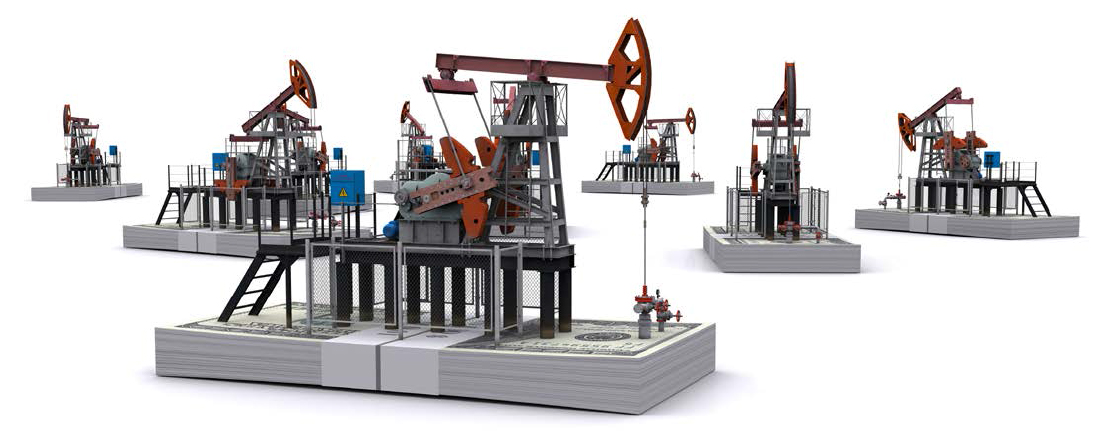
| Date Published | January 28, 2017 |
| Company | Oilfield HUB |
| Article Author | Dave O’Connor |
| Article Type | January 2017 Issue |
| Category | Articles, Oilfield HUB |
| Tags | E&P, FCM - Field Cost Manager, ORM - Operations Report Manager, PVM-Preferred Vendor Manager, S&S, SCM-Supply Chain Manager, The HUB Online Community |
| HUB SEARCH | OilfieldHUB |

Oil and gas producers have a certain skill set based on the talent they need to find deposits of organic material that has rotted below the surface of the earth for the past few hundred million years. They are good at it. Why? They hire the right people with the skills they require to find that stuff. Seems logical.
The business of extracting hydro carbons is heavily dependent on third party contractors. Most producing companies do not really own much in the way of drilling rigs, water trucks, etc. They hire this kind of talent from the dizzying array of energy service companies in the market. However, the organization of this network is a real brain cramp.
When we meet with operating companies about how they manage their supply chain, we get a wide-ranging response about how the process works from company to company. We hear everything from sophisticated enterprise management platforms to, “I send out an email to my Rolodex of service companies. I have a great relationship with all of them, many on a personal level, and use them for each well we drill.” These responses are being used depending on the size of the company. But, the interesting thing is all companies, from micro juniors to majors, have told us they are having issues and need help getting things more organized, verifiable, and audit proof. Not all operating companies are good at logistics and supply chain management. Again, seems logical.
The process of extracting the ancient plant goo is complex. Vendors offer services or products that are crucial in all facets of the lifecycle of a well. With each project typically involving 25+ vendors the operator is responsible for keeping track of, field supervisor’s days are divided between reporting on actual operations and coordinating these vendors.
In times such as what we are struggling through now, when commodity prices are constricted, the pain threshold gets challenged across the entire network. Typically, the letter goes out to energy service companies requesting they reduce their rates. Seems logical. But, is it the answer? How hard are producers looking to find efficiencies in their own backyard before they just throw out the obligatory oration of, “Okay, all you service companies, you know the drill. Drop your pants and bend over. This one might hurt a bit.” Well the old butt cheeks are still puckered, and the mercy rule does not apply here. At least it doesn’t for the companies that have somehow managed to stay in business. They are the smart ones that  made the appropriate adjustments instead of just blankly staring at each other in the lunch room hoping the beatings would stop. They haven’t.
made the appropriate adjustments instead of just blankly staring at each other in the lunch room hoping the beatings would stop. They haven’t.

Is the downward pressure on pricing a race to the bottom and lowest price wins? Is that healthy?
As one industry veteran pointed out to me recently:
I’m not sure the constant battle between E&P and service companies over pricing will ever go away. It’s all about the supply and demand and E&P companies willingness to exercise discipline (or not). I fail to see the relationship between commodity prices and service pricing when typically the biggest cost input is labor. Price is X at $50/bbl and 1.5X at $100/bbl.”
Why is that?
Does a jeweler expect more profit margin when the price of gold goes up? No.
Does a grocery store make more margin because the price of beef goes up? No.
Our high cost structure has made up two thirds of our basin un-economic and uncompetitive.
It really becomes apparent when you compare wage/salary levels of university educated non-oil and gas employees with high school educated oil and gas field personnel. It’s actually quite shocking.
As for the, ‘you get what you pay for’ argument, I’m not so sure.
I will always use competent services that provide fair pricing (not necessarily the lowest) and actually appreciate getting the work. The days of, “Here is the price. Take it, or leave it,” are over. Oil and gas reserves and production are no longer scarce. It is abundant. Cost structure matters more than ever and will continue to matter.
Cost structure matters. At Oilfield HUB, we believe there is hidden money to be found in how you manage your operation and who you select as vendors. Mistakes are not as easily covered up by throwing more money at the problem, which can happen with $100 oil but not so much at half that price. The process is a sloppy one, because the skill set is typically focussed on finding oil not necessarily maximizing the efficiencies around getting it out of the ground. It’s especially cumbersome due to the legacy issues around how the ‘good ol’ boys’ of the industry have clung to the ‘good ol’ boy’ ways of doing things. Not to say it doesn’t work. The question is can it work better?
So why don’t you take a look at the process? Let’s talk about making sure you have the right company for the right task at the right price to make sure you minimize risk. In a business where the price is fixed net profit increases often come from within.

Dave O’Connor
Vice President – Sales
dave.oconnor@oilfieldhub.com
(403) 910-4172
OILFIELD HUB Inc.
Originally published in the